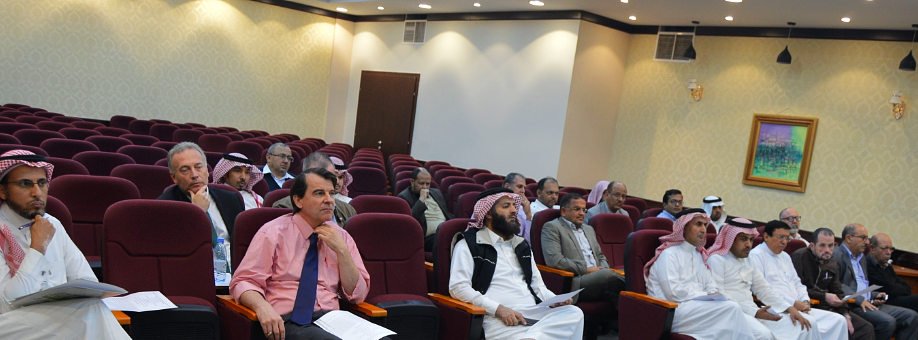Developing and Assessing the Relationship between Intercultural Communication Competence and Intercultural Sensitivity in the EFL Classroom
Prof. Hamad Al Dosari delivered a presentation titled Developing and Assessing the Relationship between Intercultural Communication Competence and Intercultural Sensitivity in the EFL Classroom at a Language Research Center seminar held on October 31, 2018. His presentation is about a paper he is going to present at the 24th Annual International Conference of the Bolivian English Teachers Association.
Prof. Dosari first explained Communicative Competence in detail. He emphasized that it involves intercultural competence and intercultural sensitivity. Learning should include verbal communication such as conversational styles in addition to nonverbal communication such as gestures and body language which is behavior that adds to spoken or written language, said Prof. Dosari while quoting Arévalo-Guerrero. Some researchers, he added, suggested that "intercultural competence, intercultural communicative competence, intercultural sensitivity, and cross-culture adaptation" can be used interchangeably. In his study, he used two instruments – the Intercultural Communication Competence Survey by Aldosari & Mekheimer (2018) and the Intercultural Sensitivity Scale (ISS) of Chen and Starosta (2000).
Prof. Dosari, based on his research findings, concluded that intercultural communication competence and intercultural sensitivity could be achieved when the basic knowledge, skills, motivation, awareness, behaviors, and attitudes towards intercultural competence are focused on in the foreign language curriculum. He emphasized that foreign language curriculum should be integrated into cultural education that would show differences and similarities between the native cultures of the FL learners and the target cultures of the foreign language.
The seminar was an overall success.
Date: 11/1/2018
Source: Mohammad Adil Siddique
Multimedia Source: Mohammed Jabir

